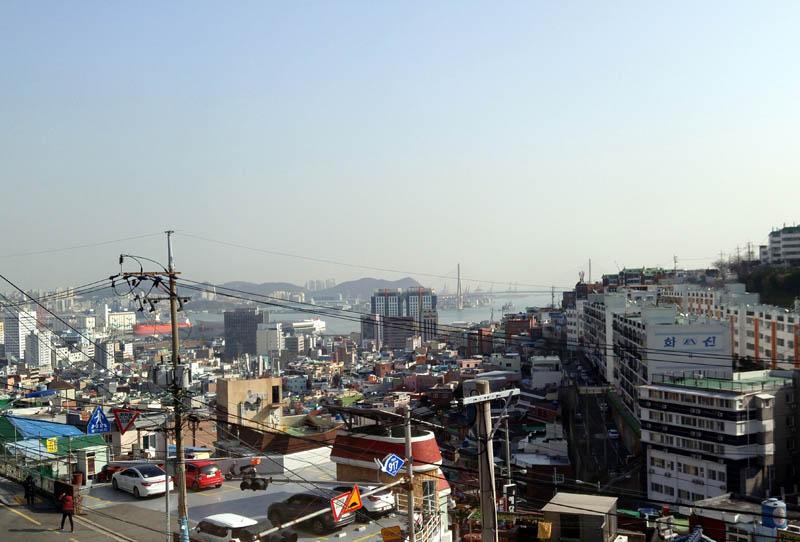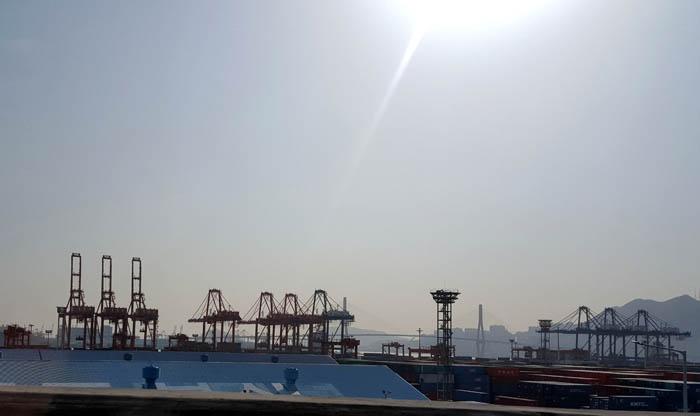ewogICJzZXJ2aWNlLmNhY2hlLmV4cGlyZXRpbWUiIDogIis5OTk5OTk5OTk5OTkiLAogICJhZGQubWF4bGV2ZWwiIDogIjkiLAogICJlbGVtZW50LndvcmtlcnBhcnNlIiA6ICJmYWxzZSIsCiAgInNraW4iIDogImFsaW5hdmlnYWF0aW8uaHRtbCIsCiAgImVkaXR1cmwiIDogIi9iaW4vZ2V0L3ZlZC93cm9pTDY1bGMud3JxMXNCTndpLnh3Z1N2Q3RLOCIsCiAgInNlcnZpY2UuYWRkcGFyYW1zIiA6ICIiLAogICJhZGQubWlubGV2ZWwiIDogIjciLAogICJzdWJsaXN0LmNvbnRhaW5lcnMiIDogImZhbHNlIiwKICAiRWxlbWVudC5CYXNlIiA6ICJjb250ZW50L25hdiIsCiAgImxpbmtDaGFubmVsIiA6ICJhdXRvIiwKICAiYWNjb3JkaW9uLmF1dG9jb2xsYXBzZSIgOiAidHJ1ZSIsCiAgIlVJRCIgOiAiaWRzdFFGN3hjNWMiLAogICJsb2FkVmlld0FmdGVySW5saW5lQWRkIiA6ICJ0cnVlIiwKICAibGluay1mcmFtZSIgOiAiY29udGVudCIsCiAgIkNVUlJFTlRQQVRIIiA6ICIvc3RhdG8vZnJhbWVzZXQvc3RhdG8vZnJhbWVzZXQvc3RldmVjby91dXRpc2V0L2FsaW5hdmlnYWF0aW8vc3RldmVjby91dXRpc2V0L2FsaW5hdmlnYWF0aW8vIiwKICAiZWRpdExpbmtWZXJzaW9uIiA6ICJXb3JrIiwKICAic2VydmljZS5kZXNjcmlwdGlvbmZpZWxkIiA6ICJOYXZpZ2F0aW9uRGVzY3JpcHRpb24iLAogICJlbGVtZW50LjgiIDogInRydWUiLAogICJhY2NvcmRpb24uY2hldnJvbi1wb3NpdGlvbiIgOiAiYWZ0ZXIiLAogICJlbGVtZW50LjciIDogInRydWUiLAogICJzb3J0YWJsZSIgOiAidHJ1ZSIsCiAgImVsZW1lbnQuNiIgOiAiZmFsc2UiLAogICJlbGVtZW50LjUiIDogImZhbHNlIiwKICAiZWxlbWVudC5jb21wb25lbnQiIDogInRydWUiLAogICJjYXJkY2hhbm5lbCIgOiAicHVibGljIiwKICAibGluay1kZXNjcmlwdGlvbiIgOiAiZmFsc2UiLAogICJlbGVtZW50LnB1YmxpY2xpbmsiIDogIi9lbGVtZW50Lmh0bWwuc3R4IiwKICAic2VydmljZS5jYWNoZWtleSIgOiAiL2VuL2FqYW5rb2h0YWlzdGEvcHVibGljVklFVyIsCiAgInNvcnQuYWxsb3dlZGxldmVscyIgOiAiNyw4LDkiLAogICJlbGVtZW50LmxvYWQiIDogImNsaWVudCIsCiAgImVsZW1lbnQubGluayIgOiAiL2VsZW1lbnQuaHRtbC5zdHgiLAogICJzZXJ2aWNlLmFkZHZhbHVlcyIgOiAiIiwKICAiZWxlbWVudC5iYXNlLm1vZHVsZSIgOiAic3RldmVjbyIsCiAgInNlcnZpY2UubGlzdHZhbHVlcyIgOiAiIiwKICAibGV2ZWxPZmZzZXQiIDogIjUiLAogICJjaGFubmVsLmxhbmd1YWdlIiA6ICJlbiIsCiAgImxpc3RDTVNTdGF0dXMiIDogInB1Ymxpc2hlZCIsCiAgImFkZFBhZ2UubG9hZHZpZXcucmVsb2FkIiA6ICIiLAogICJoYXNSb2xlIiA6ICJmYWxzZSIsCiAgImRhdGFfbGlzdGVuZXJzIiA6ICJzdGV2ZWNvL3V1dGlzZXQvYWxpbmF2aWdhYXRpbyxzdGV2ZWNvIiwKICAiZWxlbWVudC5vbmxvYWQiIDogIm5vbmUiLAogICJuYXZpZ2F0aW9uSWNvbnMiIDogInRydWUiLAogICJzZXJ2aWNlLmNhY2hlLnB1Ymxpc2giIDogImZhbHNlIiwKICAic2VydmljZS51c2VjYWNoZSIgOiAiZmFsc2UiLAogICJzaG93U3RhdHVzIiA6ICJ0cnVlIiwKICAiZWxlbWVudF9wYXRoIiA6ICJzdGV2ZWNvL3V1dGlzZXQvYWxpbmF2aWdhYXRpbyIsCiAgInNlcnZpY2UubGlzdHBhdGgiIDogIi9jaGFubmVscy9wdWJsaWMvd3d3L3N0ZXZlY28vZW4vaW5kZXgvYWphbmtvaHRhaXN0YSIsCiAgInB1YmxpY3VybCIgOiAiL2VsZW1lbnQuaHRtbC5zdHgiLAogICJzZXJ2aWNlLmNhY2hlcGF0aCIgOiAiL3N0ZXZlY28vc2lzYWx0b25hdmlnYWF0aW8iLAogICJyb290c2VjdGlvbiIgOiAiZGVmYXVsdCIsCiAgImltcG9ydHBhdGgiIDogIi93ZWJjb21wb25lbnRzL3N0ZXZlY28vdXV0aXNldC9hbGluYXZpZ2FhdGlvIiwKICAiZWxlbWVudC5iYXNlIiA6ICJhbGluYXZpZ2FhdGlvIiwKICAic2VydmljZS5jYXJkdHlwZXMiIDogIioiLAogICJlbGVtZW50LmNsaXBib2FyZCIgOiAidHJ1ZSIsCiAgImVsZW1lbnQubGFuZ3VhZ2UiIDogImZpIiwKICAiZWxlbWVudF9tb2RlIiA6ICIiLAogICJ2aWV3dXJsIiA6ICIvYmluL2dldC92aWQvd3JvaUw2NWxjLndycTFzQk53aS54d2dTdkN0SzgiLAogICJjc3MiIDogImNzcy9hbGluYXZpZ2FhdGlvLmNzcyIsCiAgInNlcnZpY2UubGlzdGZpZWxkcyIgOiAiIiwKICAibGF5b3V0IiA6ICJob3Jpem9udGFsIiwKICAiZHJvcGRvd24tLWxpbmstZGVzY3JpcHRpb24iIDogImZhbHNlIiwKICAic2hvd01hbmFnZW1lbnQiIDogImZhbHNlIiwKICAic2VydmljZS5zZXJ2aWNldXJsIiA6ICIvYXBpL3N0ZXZlY28vbmF2aWdhYXRpby5zcnYiLAogICJzZXJ2aWNlLmxpc3RsZXZlbHMiIDogIjEiLAogICJzZXJ2aWNlLnBlcnNvbmFsIiA6ICJmYWxzZSIsCiAgImxpc3RlbmVycGF0aCIgOiAic3RldmVjbyIsCiAgImlubGluZUFkZFRleHQiIDogIkxpc8Okw6Qgc2l2dSIsCiAgInNob3dEcmFmdHNJbkFkbWluQ2hhbm5lbCIgOiAidHJ1ZSIsCiAgImxpbmtQYXJzZW1vZGUiIDogImF1dG8iLAogICJzZXJ2aWNlLm9wZXJhdGlvbiIgOiAibGlzdGFhYWxpbmF2aWdhYXRpbyIsCiAgImVsZW1lbnQucGF0aCIgOiAic3RldmVjby91dXRpc2V0L2FsaW5hdmlnYWF0aW8iLAogICJzZWN0aW9uIiA6ICJkZWZhdWx0IiwKICAiSU5TVEFOQ0VJRCIgOiAic3RRSXV4OUR3IiwKICAidXJsZXhlY3V0ZXBhdGgiIDogIi9jaGFubmVscy9wdWJsaWMvd3d3L3N0ZXZlY28vZW4vaW5kZXgvYWphbmtvaHRhaXN0YS9ibG9naS92Nm13dUJxTGMiLAogICJzZXJ2aWNlLmF1dG9wdWJsaXNoZm9sZGVycyIgOiAidHJ1ZSIsCiAgImVsZW1lbnQuYmFzZS5saXN0IiA6ICIvbW9kdWxlc2Jhc2UvZWxlbWVudHMvc3RldmVjby9hbGluYXZpZ2FhdGlvLC9tb2R1bGVzYmFzZS9lbGVtZW50cy9jb250ZW50L25hdi9ob3Jpem9udGFsLC9tb2R1bGVzYmFzZS9lbGVtZW50cy9jb250ZW50L25hdiIsCiAgInNlcnZpY2Uuc2VydmljZSIgOiAic3RldmVjby9uYXZpZ2FhdGlvIiwKICAiZWxlbWVudC5yb290Lmxpc3QiIDogIi9tb2R1bGVzYmFzZS9lbGVtZW50cy9jb250ZW50L25hdi9yb290LnN0YXRvIiwKICAiYWNjb3JkaW9uLmFsbG93ZXhwYW5kZXIiIDogImZhbHNlIiwKICAibGlzdGZpZWxkcyIgOiAiQ01TLlN0YXR1cyIsCiAgInRyaW0iIDogInRydWUiLAogICJjbGFzcyIgOiAiYWxpbmF2aWdhYXRpbyIsCiAgImVsZW1lbnQubW9kZSIgOiAiZWxlbWVudCIsCiAgImFkZFBhZ2UubG9hZHZpZXcuZnJhbWUiIDogImNvbnRlbnQiLAogICJyZWFjdFRvRWRpdG1vZGUiIDogInRydWUiLAogICJzdWJsaXN0LmNvbnRhaW5lcnMuYW1vdW50IiA6ICIzIiwKICAic2VydmljZS5saXN0b3JkZXIiIDogIk5fb3JkZXIiLAogICJza2luLmV4dGVuZCIgOiAiL21vZHVsZXNiYXNlL2VsZW1lbnRzL2NvbnRlbnQvbmF2L25hdi5odG1sLC9tb2R1bGVzYmFzZS9lbGVtZW50cy9jb250ZW50L25hdi9uYXYtYWRtaW4uaHRtbCIsCiAgImFsaWduIiA6ICJjZW50ZXIiLAogICJlbGVtZW50LnNraW4ubW9kZSIgOiAiZXh0ZW5kIiwKICAiZWxlbWVudCIgOiAic3RldmVjby91dXRpc2V0L2FsaW5hdmlnYWF0aW8iLAogICJ2aWV3TGlua1ZlcnNpb24iIDogImN1cnJlbnQiLAogICJHVUlEIiA6ICIiLAogICJzaG93SW5saW5lQWRkIiA6ICJmYWxzZSIsCiAgIiIgOiAiIgp9
Daily trip to Busan
Today’s blog is going to be little bit more relaxed than usually. I visited southern city of Busan here in Korea. Busan is also the city with the biggest port in Korean peninsula and 6th busiest port in the world. As we were traveling on our own, unfortunately we didn’t have access to inside the port, but we looked from the outside what we could. Getting to Busan from Seoul is easy and only takes around three hours by high speed rail. There are multiple hourly departures every day of the week.
Busan has been on the news lately due to Russian flagged general cargo vessel being detained in the port of Busan due to suspected violations of UN’s North Korea sanctions by delivering oil products to NK flagged vessel in the seas. Vessel is supposedly still detained despite Russia firmly denying the accusations and summoning South Korean ambassador and demanded immediate release of the vessel. Despite this, vessel is still supposedly stuck in Busan due to South Korean companies refusing provide it bunker for its home journey.
The port itself is sixth busiest in the world with cargo volumes up to 20 million TEU annually only slightly behind the port of Hong Kong on fifth place with volumes closing to 21 million TEU annually. From the total cargo volume in Busan, half is transshipment cargoes and another half is domestic shipments. Domestic shipments further divide half for imports and half for imports forming nice and healthy division of income for the port. Port of Busan is looking for growth in the transshipment volumes and growth of up to one million TEU for next year is possible. Such growth is possible due to good connections Busan has to rapidly developing Asian countries of Vietnam, Indonesia and Thailand among others. Growth in these economies would bring the much-wanted growth to Busan.
When Hanjin Shipping collapsed some time back, the consequences were immediately seen in port of Busan being the home hub for Korean shipping giant. However, as so often in shipping business, vacuum Hanjin’s collapse left was quickly filled by the major alliances hoping to capture more market share and get new customers who were now forced to change their carrier.
About Author
Tuomo Keltto
Tuomo Keltto is a logistics engineer who continued his studies in Seoul, South Korea. He studied at the Korean Government scholarship for a Master's degree in international trade and logistics. Now he is back in Finland and he works at Neste in Porvoo. - He has previously been in Steveco Hietanen for three summers as a temporary stevedore and as a foreman for one summer.



